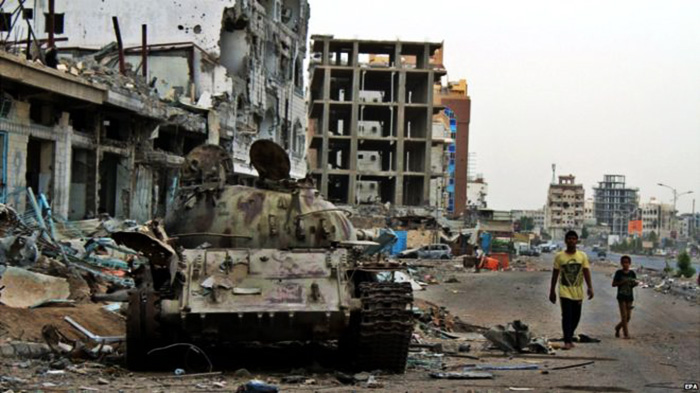Yemen conflict: Houthi rebels commit to UN peace plan

The letter follows a verbal commitment to the resolutions issued last month.
The UN estimates nearly 4,900 people, including 2,355 civilians, have been killed in the conflict in Yemen.
Addressed to Ban Ki Moon, the letter commits to the seven Muscat principles, which include a ceasefire, the removal of armed militias from the cities and the return of the government to the capital, Sanaa.
Yemen`s President Abdrabbuh Mansour Hadi has insisted Houthi fighters pull back from territory seized over the past year before an agreement can be reached.
`Fundamental step`
In the letter, the Houthi representatives, known officially as Ansar Allah, call the peace plan an "important and fundamental ... step towards the resumption of the political process".
"We, from our side along with other parties, commit to these seven points as one unified bundle," it says, adding: "We welcome the UN call for all sides to return to the table of dialogue."
The letter criticises the government, alleging it has "not shown any positive reciprocity" with the UN peace process.
Analysis: Lyse Doucet, BBC chief international correspondent
There are many reasons to be sceptical of any moves, by any side, in Yemen`s tortuous conflict. But this written commitment by the Houthis could be a significant step.
Yemen`s embattled negotiating process, which draws in the UN, EU, as well as Western and regional players, is a new challenge for what was a movement rooted in the tribes of northern Yemen.
One source told me this letter addressed to the UN secretary general was "a signal to the rest of the world". Even the decision to send a copy to the BBC represents rare outreach to a Western audience.
The real test now is to implement the Muscat plan: which armed groups will withdraw from the cities, which government members will return? But if, at the very least, a ceasefire is reached that will be a major step for Yemenis enduring what the UN calls "terrifying violence and extreme hunger".
The conflict, and peace process, is complicated by the involvement of Saudi Arabia and the United Arab Emirates, which are fighting alongside government forces.
The Houthi rebels also receive some outside support, from Iran.
Separately on Tuesday, attacks in Aden on a hotel used by Yemen`s prime minister and two military installations killed 15 Saudi-led coalition troops and pro-government fighters, Emirati state media say.
Explosions rocked the Qasr hotel, the headquarters of the UAE`s forces in the city and a camp early on Tuesday. Prime Minister Khaled Bahah and members of his government escaped unharmed.
The UAE blamed rocket-fire from Houthi rebels, but Islamic State (IS) said suicide bombers were responsible.
Jihadist militants have reportedly been seen on the streets of Aden since southern militiamen backed by coalition forces drove the Houthis out of the city in July.
As well as those killed, nearly 1.5 million people have been displaced by the conflict, according to UN estimates, with about 13 million people facing food shortages and 80% of the population need some form of aid.















































